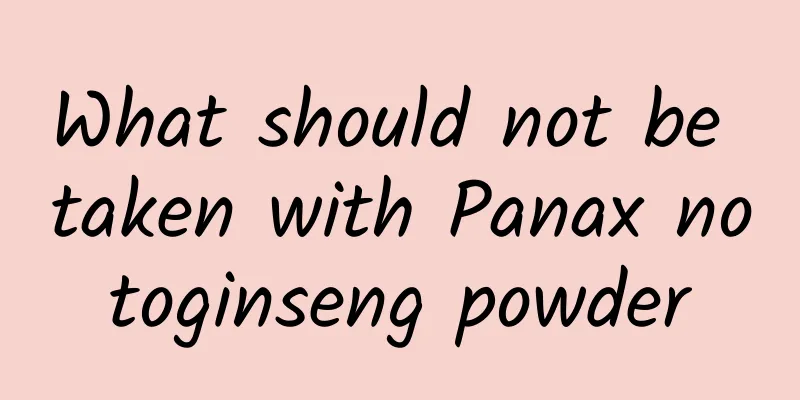Do you feel anxious if you don't play mahjong for a day? Test your addiction level and stop when it's time

|
Whether it is young cubs Or middle-aged and elderly friends Many people are regulars at the mahjong table. Touching the cards is like being possessed by the "God of Mahjong" Even if you feel dizzy from work or taking care of the children, you can immediately become alert by sitting down at the mahjong table, picking up the cards, looking at the cards, shuffling and sorting the cards, and the more you play, the more alert you will be. I have to review the game as soon as I close my eyes to sleep, and my phone search history is all about "cheats to win at mahjong"... I would like to remind everyone that if you want to “fight to the end” and “play till the day is dark” as soon as you sit down at the card table, and feel anxious if you don’t play for a day, then you are probably addicted. Brothers and sisters in Sichuan and Chongqing should have a deep understanding of the issue of "card addiction". There are always a few relatives and friends around them who "treat the mahjong parlor like their home". Once they sit down at the card table, they can't stop. Even if their family members have advised them against it, they still have the urge to play a few rounds. When asked, the first thing they say is: "How could I be addicted? I can stop taking it if I say so." Although we all say "small gambling is fun, big gambling is harmful to the body", in fact, once it becomes an addiction, no matter how big or small, it is a serious psychological problem and we still have to take it seriously. You may ask, how do you know whether you are interested or really addicted? Don’t worry, ask yourself the following questions and see if your answer is “yes” or “no”. After asking, you should be clear. 1. Do you ever feel like you need to add more chips to get that thrill? 2. After losing money, do you always think about making it back? 3. After playing cards, do you feel depressed or even desperate? 4. Do you regret playing cards? 5. Have you ever been unable to sleep because of playing cards? 6. Have you ever borrowed money from others for playing cards? 7. Have you ever neglected work or social activities because of playing poker? 8. Have you ever lied to family or friends about your card playing? 9. Do you ever feel guilty about playing cards? 10. Do you ever feel anxious or afraid because of playing cards? 11. Do you ever feel ashamed or guilty about playing cards? 12. Have you ever lost a job, education, or relationship because of playing cards? 13. Have you ever felt helpless because of playing cards? 14. Have you ever felt tired or drained from playing cards? 15. Do you ever feel anxious or irritable because of playing cards? 16. Do you ever feel nervous or anxious about playing cards? 17. Have you ever felt frustrated or down as a result of playing cards? 18. Have you ever felt lonely or abandoned because of playing cards? 19. Have you ever felt guilty or ashamed again about playing cards? 20. Have you ever felt hopeless or despair as a result of playing cards? If you answer "no" to most of the questions, then it's not a big problem. If you answer "yes" to more than 5 questions, then there may be some problems , and it is recommended to go for psychological counseling. Remember, this self-test is just a reference. If you want to be rigorous, you need to see a doctor! So why is it addictive? Next, let's look at the reasons why people become addicted to playing cards and see why they become addicted. In fact, addiction is not caused by a single reason. ** From psychological, physiological to social factors, ** all add fuel to the fire. Psychological factors Psychologically, the game at the poker table is like the “bad boy” who always makes sweet promises to you but never delivers on them. Image source: Photo Network It activates the brain’s reward system, releasing dopamine that makes you feel like you’ve won the jackpot , making you feel very accomplished and rewarded in that moment. Participants at the poker table often have an illusion that "I can control everything". They always feel that "luck" is on their side and they can keep winning as long as they sit at the table. But this kind of pleasure is temporary, don't let it get to your head! If you keep doing this, you will only be addicted to this psychological vortex of wanting to win all the time and always feeling that you can win. Physiological factors Physiologically, if you are obsessed with winning or losing at the poker table for a long time, your brain may become less sensitive to dopamine, just like a child who has eaten too much sugar is no longer interested in sweets, and needs more stimulation to get the same pleasure. Image source: Photo Network In addition, changes in hormone levels can also play a role. The lack of norepinephrine and serotonin is like a shortage of "happy police" in the body, which will further lead to an increase in the frequency of playing cards and the number of chips. Social factors Social factors are not to be outdone. Cultural background, economic conditions, social norms, and even your circle of friends are all quietly influencing you. For example, if "small gambling for pleasure" or "mahjong socializing" is popular in your circle of friends, you may be drawn into it without realizing it. At first, you may participate passively, but eventually you will gradually become the leader of the game. The media and advertising are not to be outdone. They are like the tempting voice that always whispers in your ear, "Come on, try your luck." In terms of mental health, "card addiction" is a thief that sneaks into your mind, stealing your peace and happiness, leaving you with anxiety and depression; In terms of interpersonal relationships, the "game" is mostly destructive, causing family relationships to deteriorate and social circles to shrink, making you sink deeper and deeper into loneliness. More realistically, playing cards all the time might put you under increasing financial pressure... But don’t give up on yourself, this is not a “terminal illness” and there is a solution! On the one hand, we should actively carry out psychological treatments , such as cognitive behavioral therapy and motivational interviewing. They are "gyms" at the psychological level, helping addicts reshape their thinking, strengthen their self-control, and regain control of their lives. On the other hand, there are also treatments such as neuromodulatory techniques, such as rTMS and t-DCS, which may be new weapons in the treatment of gambling disorder. Some studies have suggested that these techniques can reduce the urge to gamble. "Mahjong socializing" sounds like an entertainment or a party, but if it is played without restraint and indulged in, it may become a "landslide" in life and put people in trouble. I believe everyone will eventually find that what you win at the poker table is just a short-lived pleasure, but you can’t win time, family, and true friends. Life is a book, and every page is worth savoring. Don’t stay on the “playing cards” chapter, turn to a new and more exciting page! Statement: This article is a medical-related educational popular science article. It does not involve specific treatment methods or medical behaviors and cannot replace hospital visits. Author Duan Yuxin, a five-year clinical medicine student at West China School of Clinical Medicine, Sichuan University Liu Ruoxuan, Five-year Program in Clinical Medicine, West China School of Clinical Medicine, Sichuan University Wu Bingyu, Five-year Clinical Medicine Program, West China School of Clinical Medicine, Sichuan University Li Ruixue, Five-year Clinical Medicine Program, West China School of Clinical Medicine, Sichuan University This article is guided by the teacher References [1] Chen Minying. Addiction: The wrong self-healing[J]. Procuratorial Storm, 2024, (14): 78-79. [2] Shi Yongdong, Pu Xiaohong. The relationship between negative emotions, gambling cognitive bias and gambling addiction among college students[J]. Chinese Journal of Mental Health, 2017, 31(07): 563-567. [3] Yan Wansen, Zhang Ranran, Lan Yan. Analysis of addiction behavior and risk factors among college freshmen in a certain university[J]. Chinese Journal of School Health, 2016, 37(09): 1403-1406. DOI: 10.16835/j.cnki.1000-9817.2016.09.039 Content Production Editor: Zhang Fuyao Map: Eastern Zhou Dynasty |
<<: The number of pulsars discovered by the "China Sky Eye" exceeds 1,000! | Expo Daily
>>: Chicken and pork should be eaten well-done, so is medium-rare steak safe?
Recommend
"Hand in hand" in outer space? A review of the "highlights" of China's international space cooperation
After decades of efforts, China's space indus...
Is Houttuynia cordata a "harmful grass" and does it contain a first-class carcinogen? The truth is...
Author: Wang Yanli, registered dietitian Reviewer...
Everything has its limits, and so does eating.
Author: Wang Ying, Chief Physician of Tianjin Men...
Beautiful but poisonous, please be careful when visiting tulips!
Review expert: Shi Jun, PhD in botany, well-known...
The efficacy and function of Fengteng
Fengteng is a kind of traditional Chinese medicin...
The efficacy and function of juniper fruit
Many people choose juniper fruit because of its h...
The efficacy and function of Diplocoriaceae
Do you know what the split-leaved dipterex is? It...
Sixty percent of the Greek letters have been used. Why has Omicron become the highest level of concern variant?
According to the announcement released by the WHO...
Is it better to be fatter or thinner after age 50? Research finds: People with this weight are more likely to live to 90!
After the age of 50, is it better to be fatter or...
Lavender toner benefits
Lavender has a calming and soothing effect and ca...
Can Panax notoginseng powder remove freckles?
Freckles in some patients are caused by blood blo...
What are the medicinal values of Osmanthus fragrans
The sweet osmanthus is fragrant in October. Sweet...
The efficacy and function of tofu firewood root
Tofu chai is a green plant of the Verbenaceae fam...
The efficacy and function of cow blood
In fact, the occurrence of many human diseases is...
Are Rehmannia glutinosa and Radix Rehmanniae the same?
Are cooked rehmannia and cooked rehmannia root th...









